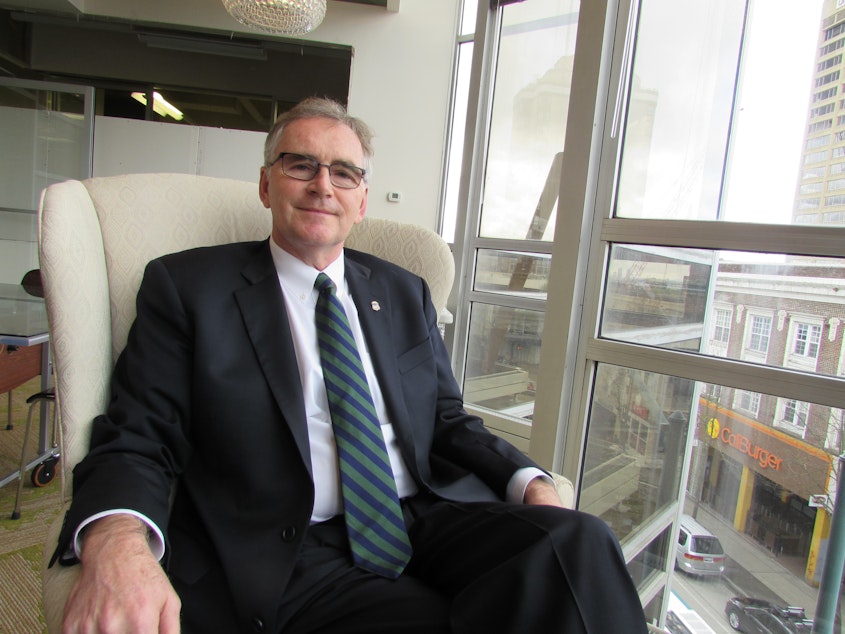New U.S. attorney on safe injection sites in Seattle: 'Don't go there'

Longtime prosecutor Brian Moran said the federal government cannot permit sites where people would openly inject and use "deadly substances."
The new U.S. attorney in Seattle said he warned city officials not to move forward with supervised drug consumption sites.
Supporters say so-called safe injection sites could save lives, since people can be revived if they overdose.
The U.S. Attorney in Philadelphia has filed a civil lawsuit to block the proposed sites. Moran calls that approach a “logical path” if Seattle moves forward as well.
“I’ve read those pleadings, I’ve talked to the Seattle City Attorney Pete Holmes about it,” Moran said. “He asked me where I stood on it. I said, ‘Don’t go there, Pete, don’t go there.’”
Holmes confirmed that conversation. City officials said recently that the sites are on hold amid uncertainties over litigation and funding.
Sponsored
Moran is the former Kitsap County prosecutor. He later worked for the Washington Attorney General’s office under Chris Gregoire and Rob McKenna. He left in 2013 to work at the firm Orrick, Herrington & Sutcliffe in Seattle.
He was nominated by President Donald Trump to become U.S. attorney for the Western District of Washington. Moran said "there was no political litmus test" during the interview process with former Attorney General Jeff Sessions and Deputy Attorney General Rod Rosenstein.
In an interview with KUOW, Moran said he will prosecute hate crimes and human trafficking aggressively. He’s also focused on felons illegally possessing firearms, and large-scale drug operations.
“I’m looking at tremendous loads of methamphetamine coming into this state from Mexico,” Moran said. He said two of his brothers are retired Customs and Border Protection agents, and he doesn’t see ports of entry as the only priority for stopping illegal drugs.
“They’re coming from everywhere," he said. "They’re not just coming through the ports, they’re not just coming through the desert."
Sponsored
Moran noted that he’s also taking the reins of the Department of Justice's 2012 consent decree with the City of Seattle and the Seattle Police Department.
“I’m very optimistic that the Seattle Police Department has made tremendous gains,” Moran said. “I think the community senses it. I sense it. I’m confident that those gains will be sustained.”
But he said he’ll continue the oversight to make sure the consent decree “has teeth.”
U.S. District Judge James Robart has found Seattle in initial compliance with the consent decree, which required Seattle police to change its policies and training to prevent excessive use of force. But Robart raised new questions about whether the latest contract with the Seattle Police Officers Guild, and a recent disciplinary appeal, conflict with goals for constitutional policing.




